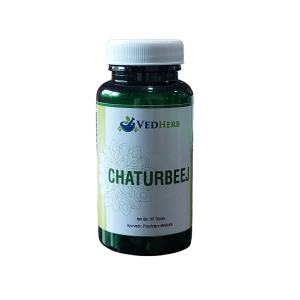Uterine Fibroid
Showing all 1 result
Uterine fibroids also called leiomyomas (lie-o-my-O-muhs) or myomas are noncancerous tumours often seen during childbearing years.
What is Uterine Fibroid?
Uterine fibroids also called leiomyomas (lie-o-my-O-muhs) or myomas are noncancerous tumours often seen during childbearing years. It is important to note that being diagnosed with a uterine fibroid does not indicate an increased risk of uterine cancer. The growths are normally benign growths of the muscle inside the uterus of women and almost never develop into cancer.
A fibroid is formed when a smooth muscle cell present in the uterus wall undergoes rapid multiplication resulting in a solitary structure or a cluster of many outgrowths. Fibroids not only vary in number but can also differ in size, shape, and location. They could be so tiny to be invisible to the naked eye or bulky masses that can distort and enlarge the uterus.
About 20 percent of women develop fibroids by the time they reach menopause.
Types of fibroids
Based on their location in the uterus, the fibroids are described as:
- Subserosal fibroids that develop on the outside of the uterus.
- Submucosal fibroids that develop under the surface of the uterine lining.
- Myometrial fibroids that grow in the muscle wall of the uterus.
- Pedunculated fibroids that protrude on a long stalk on the outside of the uterus or inside the cavity of the uterus.
Causes of Fibroids?
While medical science has no conclusive evidence on the factors that lead to a fibroid formation, some of the most common causes include:
- Dysfunctional thyroid
- Hormonal imbalances
- Lack of exercise
- Low metabolism
- Genetic conditions
Symptoms of Fibroids
Most women remain asymptomatic and the presence of a fibroid is discovered incidentally during a pelvic exam or prenatal ultrasound. For others, who develop symptoms could experience:
- Abdominal pressure
- Frequent urination
- Lower back pain
- Enlargement of the uterus
- Bleeding within periods
- Pelvic cramping or painful periods
- Pain during intercourse
Fibroid treatment
Fibroid is a complex condition and could be idiopathic or a result of several imbalances in the body. The treatment requires a holistic approach rather than symptomatic remedies.
Ayurvedic traditional medicine has a repertoire of herbs that have been time tested and been in use for centuries to promote female health. Fibroid could have serious implications on your fertility health making it difficult for you to conceive and sustain a pregnancy and it is therefore important to adopt an approach that covers all aspects of your reproductive health, so that you don’t encounter any problems related to fertility. Some of the most renowned herbs studied for their beneficial effects in fibroids include:
Saraca indica
Popularly known as Ashoka in ayurvedic texts, this herb appears to benefit the endometrium and uterine muscles and is a substantial uterine tonic. Research studies have revealed that Ashoka works as a toxin purgative clearing congestion in the uterine cavity caused by conditions such as leucorrhoea, endometriosis, cysts, and fibroids.
Kanchanara (Bauhinia variegate)
Kanchanara enables lymphatic drainage, balances Kapha Dosha, promotes elimination of inflammatory toxins and glandular tonic. It is administered in overgrowths, tumors, cysts, malignant ulcers and helps in reducing bleeding.
Dong Quai root
This herb helps increase circulation. The fresh healthy blood supply to the uterus helps to remove excess tissue growth, heal tissue damage, as well as limit scar tissue and adhesion formation. Healthy circulation also helps to remove toxins, dead tissue, diseased tissue, and metabolic waste from our bodies. This cleansing property of this root is considered very important for women with uterine fibroids.
Symplocos racemosa
Lodhra (Symplocos racemosa) is called a divine herb and considered among the best Ayurvedic remedies to address female health issues. Research has shown that Lodra can help in alleviating gynecological problems like excessive menstrual flow, leucorrhea, menorrhagia, and other uterine disorders.
Commiphora Mukul
The leaves, stem, and resin exudate extracted from the shrub of guggulu (Commiphora Mukul) possesses anti-inflammatory, carminative, and stomachic along with expectorant, diaphoretic and uterine stimulating activities. The herb is recommended for detoxification, purification of blood, and rejuvenation. Its high levels of antioxidants boost immunity, scavenge free radicals and improve flexibility of joints. Guggulu is often recommended to manage healthy weight management, regularize gonadic functions and achieve vibrant, healthy skin.
Vedherb Approach
Here at Vedherbs, we have formulated a comprehensive approach to deal with fibroids integrating herbs that not only help harmonize the vitiated dosha that leads to imbalance in the body but also help rejuvenate, repair, tonify, strengthen and restore the affected bodily system for its intended optimal function. You can contact one of our Doctors to help you assess your condition and suggest any herbs or tinctures that would be better suited to your individual morphology. You can also set up an appointment for a Free Online consultation by emailing us on doctor@vedherbs.com


